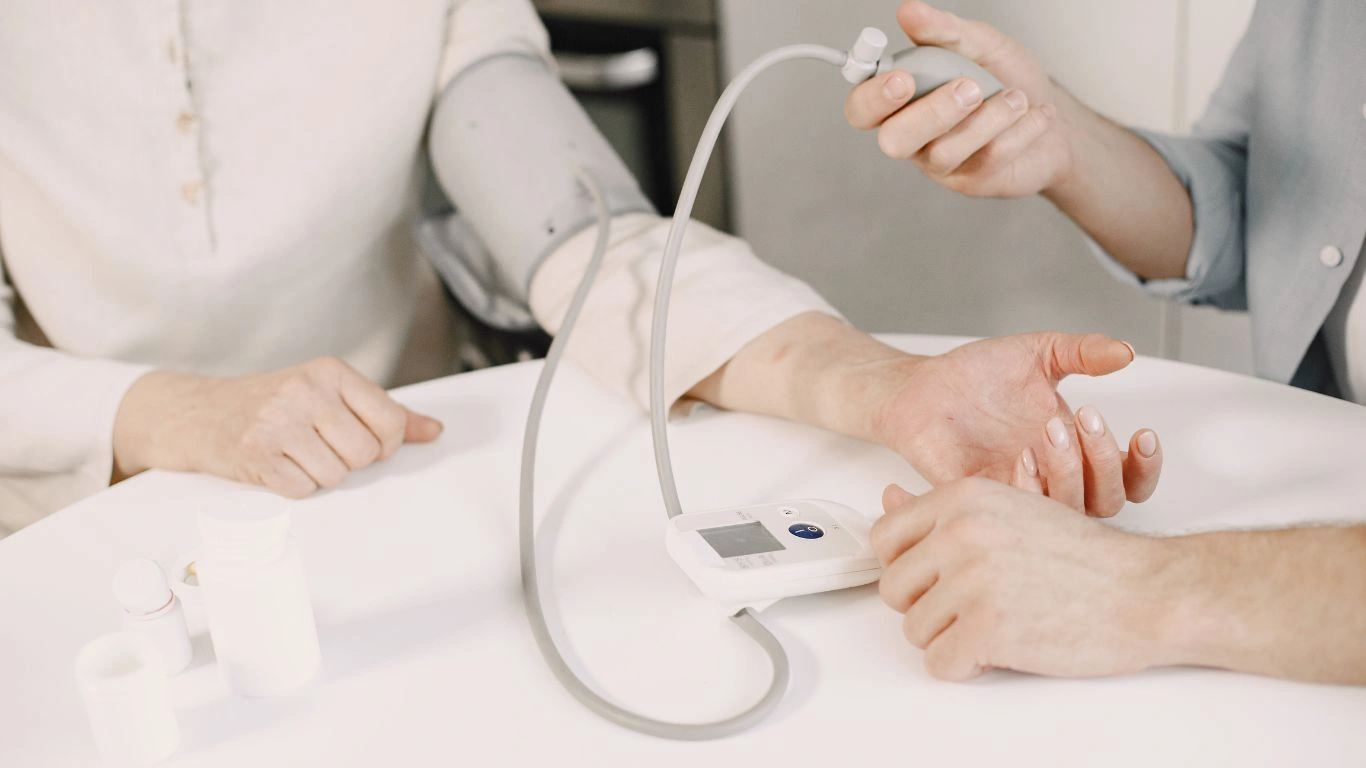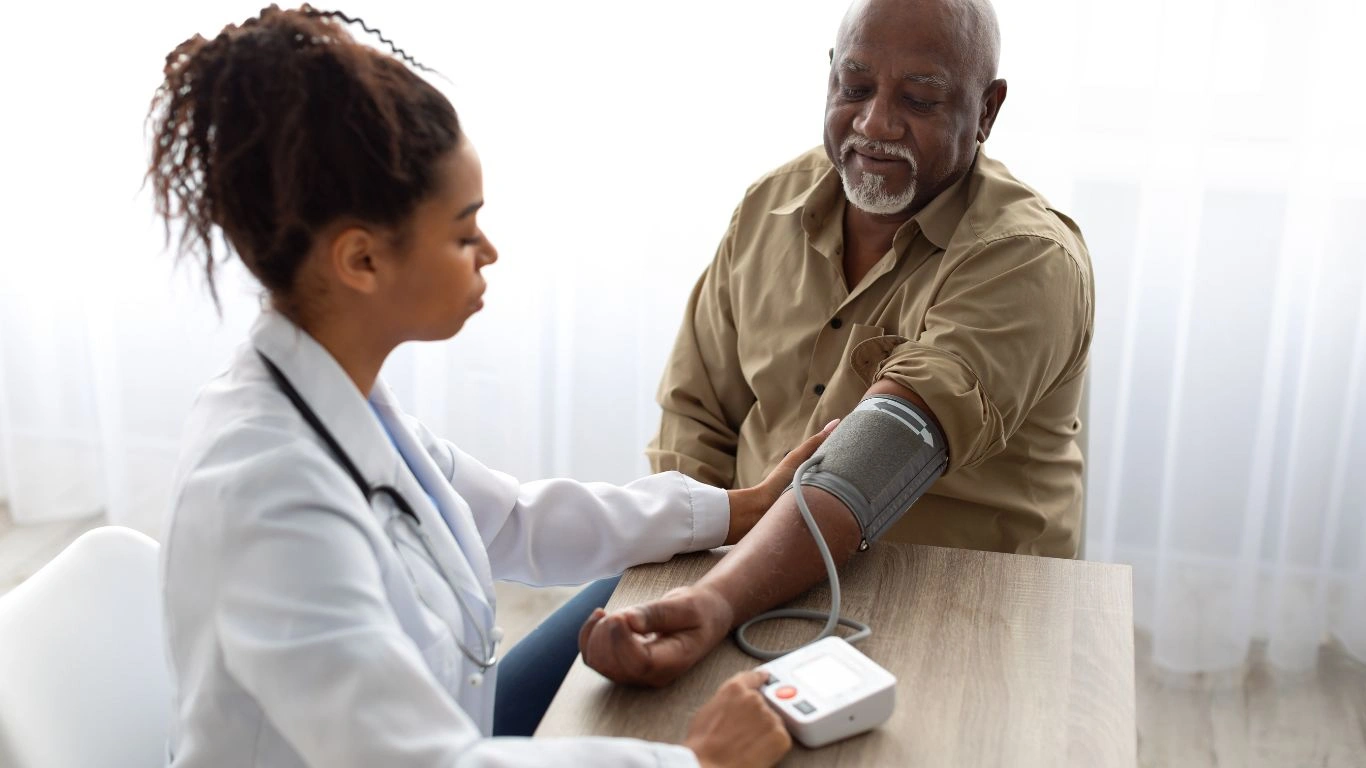High Blood Pressure and Leg Swelling Causes – What You Need to Know
Have you noticed swelling in your legs and wondered if it could be connected to high blood pressure? Let’s break down how hypertension could cause this and explore what might be going on with your body.
High Blood Pressure and Leg Swelling – The Connection
High blood pressure (hypertension) can impact more than just your heart and arteries—it can also lead to various side effects, including leg swelling. This condition, known as edema, occurs when excess fluid builds up in your tissues, causing your legs (or other parts of your body) to swell. So, why does this happen, and what can you do about it? 
Causes of Leg Swelling with High Blood Pressure
1. Poor Circulation
High blood pressure puts extra strain on your blood vessels, which can make it harder for blood to flow smoothly throughout your body. As a result, your veins in the legs may struggle to push blood back up to your heart, causing fluid to build up in your legs. This can lead to swelling, particularly at the end of the day when gravity has had a chance to work its magic.
2. Kidney Problems
Hypertension can damage your kidneys over time. Since your kidneys play a critical role in balancing fluid in the body, any issues with them might lead to fluid retention. The result? Swollen legs, feet, and ankles. If you’re already experiencing high blood pressure, it’s essential to monitor kidney function, as kidney problems can worsen leg swelling. 
3. Medications
Some medications used to treat high blood pressure can have a side effect of causing fluid retention. Diuretics are often prescribed to help reduce swelling, but other blood pressure medications may have the opposite effect, resulting in water retention. If you’ve recently started a new blood pressure medication and noticed leg swelling, it could be a sign that the drug is contributing to the issue.
4. Venous Insufficiency
When your veins aren’t working as efficiently due to weakened valves, blood can pool in your legs. This condition, known as venous insufficiency, is common in people with high blood pressure. It’s often a gradual problem that can worsen over time, causing your legs to swell.
5. Heart Disease
Hypertension can lead to heart disease, which in turn can cause fluid to accumulate in your legs. If your heart isn’t pumping effectively due to conditions like heart failure, it can struggle to circulate blood properly. As a result, fluid might build up, causing swelling in the lower extremities. 
How to Manage Leg Swelling Caused by High Blood Pressure
1. Monitor Your Blood Pressure
Keeping your blood pressure under control is essential. Regularly checking it and taking your prescribed medications can help prevent the complications that lead to leg swelling.
2. Exercise Regularly
Physical activity helps improve circulation and can reduce swelling. Even simple activities like walking or swimming can get the blood flowing and prevent fluid buildup in your legs.
3. Elevate Your Legs
If you’re dealing with swelling, try elevating your legs for about 20 minutes a few times a day. This helps fluids move back toward your heart, reducing the swelling.
4. Compression Stockings
Compression stockings can help reduce leg swelling by applying gentle pressure, which encourages blood flow and reduces fluid buildup. They’re particularly useful if you’re on your feet a lot throughout the day.
5. Limit Salt Intake
Too much salt in your diet can cause your body to retain more fluid. If you have high blood pressure and swelling, cutting back on salty foods can help manage both conditions. 
6. Stay Hydrated
Drinking plenty of water is essential. Ironically, not drinking enough water can cause your body to retain fluid as a survival mechanism. Staying hydrated helps flush out excess sodium and reduces swelling.
Preventing Future Leg Swelling
While managing your blood pressure is key, here are a few more tips to help prevent further leg swelling:
- Maintain a healthy weight: Extra weight can increase the strain on your veins and exacerbate swelling.
- Wear loose clothing: Tight clothing, especially around the waist or legs, can impede circulation and contribute to swelling.
- Stop smoking: Smoking damages blood vessels and makes circulation worse, which can increase swelling and other complications related to high blood pressure.
Conclusion
So, yes—you can totally eat sushi with braces! Just stick to softer ingredients, avoid anything too crunchy or sticky, and always remember to brush after eating. You’ll be able to enjoy your favorite sushi rolls without worrying about damaging your braces. It’s all about being smart with your choices!
Appendices
FAQs
- Can high blood pressure cause leg swelling? Yes, high blood pressure can impair circulation, damage organs like the kidneys, and lead to fluid retention, which results in leg swelling.
- What’s the best way to reduce leg swelling? Elevating your legs, staying active, wearing compression stockings, and limiting salt intake can all help reduce leg swelling caused by high blood pressure.
- How do I know if my leg swelling is related to high blood pressure? If you have a history of hypertension and notice persistent swelling, it’s worth checking with your doctor. A thorough examination can help determine the cause.
- What medications can cause leg swelling? Some blood pressure medications, particularly calcium channel blockers, can lead to swelling in the legs as a side effect.
- Can heart disease cause leg swelling? Yes, heart disease can lead to fluid buildup in your legs if the heart isn’t pumping efficiently, which is a common complication of long-term high blood pressure.
References
- American Heart Association. (2023). “How Hypertension Affects the Body.” Read Article
- National Institute of Diabetes and Digestive and Kidney Diseases. (2024). “Swelling and Fluid Retention.” Read Article
- Mayo Clinic. (2024). “Leg Swelling: Causes and Treatments.” Read Article
Disclaimer: The information provided in this article is for educational purposes only and does not substitute for professional medical advice. Always consult with your healthcare provider regarding any concerns about high blood pressure, leg swelling, or any other health conditions. Every individual’s situation is different, and personalized medical guidance is crucial for proper care.

Dr. Gwenna Aazee is a board-certified Internal Medicine Physician with a special focus on hypertension management, chronic disease prevention, and patient education. With years of experience in both clinical practice and medical writing, she’s passionate about turning evidence-based medicine into accessible, actionable advice. Through her work at Healthusias.com, Dr. Aazee empowers readers to take charge of their health with confidence and clarity. Off the clock, she enjoys deep dives into nutrition research, long walks with her rescue pup, and simplifying medical jargon one article at a time.







